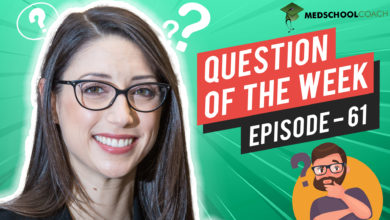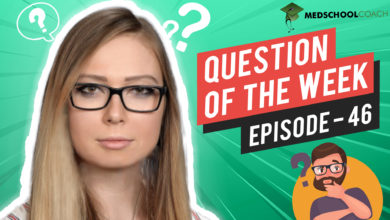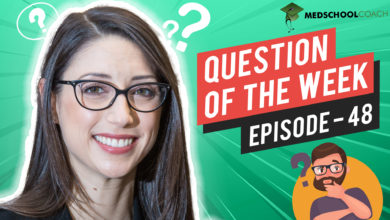USMLE Question of the Week
Treatment Options for Exercise-Induced Fatigue and Dizziness in a Teenager
In Episode 51 of Med School Question of the Week for USMLE, Faustine Ramirez, MedSchoolCoach expert tutor, answers this medical school question:
A 16-year-old boy presents to the physician’s office complaining of fatigue, shortness of breath, and chest pain that occur during basketball practice. He also experiences dizziness when he is exercising vigorously and has almost fainted several times during practice. He denies cough, wheezing, palpitations, and leg swelling. He has no medical history and takes no medications. He denies substance use. His father died in a car accident when he was a young boy, and otherwise he is unsure of his family history. On examination he is afebrile, heart rate is 85/min, respiratory rate is 16/min, blood pressure is 116/72, and oxygen saturation is 98%. On cardiovascular examination, S1 and S2 are normal. A 3/6 crescendo-decrescendo systolic murmur is heard at the left lower sternal border, that decreases in intensity with passive leg raise and sustained handgrip and increases in intensity when he is asked to exhale forcefully while holding his nose and mouth tightly closed. The remainder of the physical examination is unremarkable. Electrocardiogram reveals T wave inversions in anterolateral leads. Echocardiogram is performed and reveals systolic anterior motion of the mitral valve. What is the best initial therapy for this patient?
- Nitroglycerin
- Amlodipine
- Furosemide
- Propranolol
- Aortic valve replacement
- Pacemaker
- Implantable cardioverter-defibrillator




